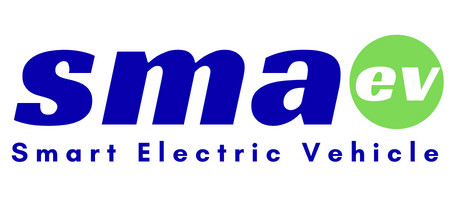The solutions as well as the market segments which enable the industrial and transport decarbonization are spanning the industry: the technologies needed for the development of e-mobility are not only addressing the passenger car sector but also those of other on-road vehicles, construction and agricultural vehicles, ships, trains, and even aircraft. FEV’s expertise in France in the field of electric and hydrogen-powered mobility, initially focused on the automotive sector, allowed the company to rapidly develop its portfolio in these new markets.
Innovations developed by FEV
On the way to the desired energy transition, hydrogen will play an essential role. FEV currently develops two different technology approaches to use hydrogen as a mobility energy source: Beside the concept of Fuel-Cell Electric Vehicles (FCEV) hydrogen internal combustion engines (H2 ICE) extend the possible H2-application fields. For long-distance road applications, like medium and heavy-duty trucks or coaches as well as for railway and maritime transport, hydrogen is a promising alternative, that is already in use for several years.
Retrofitting accelerates the ecological transition: Partnership with NGV Powertrain
Retrofitting involves replacing a traditional powertrain with a more environmentally friendly one. The main advantage of the H2 ICE is the option to replace a diesel or petrol fired combustion engine at comparably low efforts with a power unit that is in line with climate concerns.
At Hyvolution, FEV and NGV Powertrain, an Italian startup with a focus on the development of alternative propulsion systems will present a jointly developed nine-liter engine, which has been converted to hydrogen operation. Currently, this type of engine is mainly used for road transport, as well as in the construction and maritime sectors. As such, the companies’ offer of a retrofit solution will be of great interest to enterprises owning fleets of buses or trucks. For this project, FEV works on design and software aspects at its French location in Saint-Quentin-en-Yvelines. The engine shop, finetuning and testing take place at Saint-Etienne-du-Rouvray.
Advantages of this development:
- Like a fuel cell or a battery solution, the hydrogen engine does not emit CO2, since hydrogen molecules don’t contain carbon
- Reduced NOx emissions
- With retrofitting, it is possible to retain the existing vehicle fleet while making it greener
FEV France is one of eight successful candidates in the automotive sector that have been selected as part of the France Relance Plan initiated by the French government. Since then, FEV has invested in three test benches on its site at Saint-Etienne-du-Rouvray (Seine Maritime): two test benches for hydrogen internal combustion engines and one fuel-cell test bench with a capacity of up to 240 kW.
The new H2 ICE, one of the exhibits at booth D76 in hall 6, is just one of FEV´s multiple technology solutions emphasizing the company’s new brand identity: its purpose to drive innovation to help the world evolve is reflected in the new tagline “Feel EVolution”. It is a clear commitment to FEV´s mission to develop world-class innovations within sustainable mobility, energy, and software to power a better future.
Source : FEV






